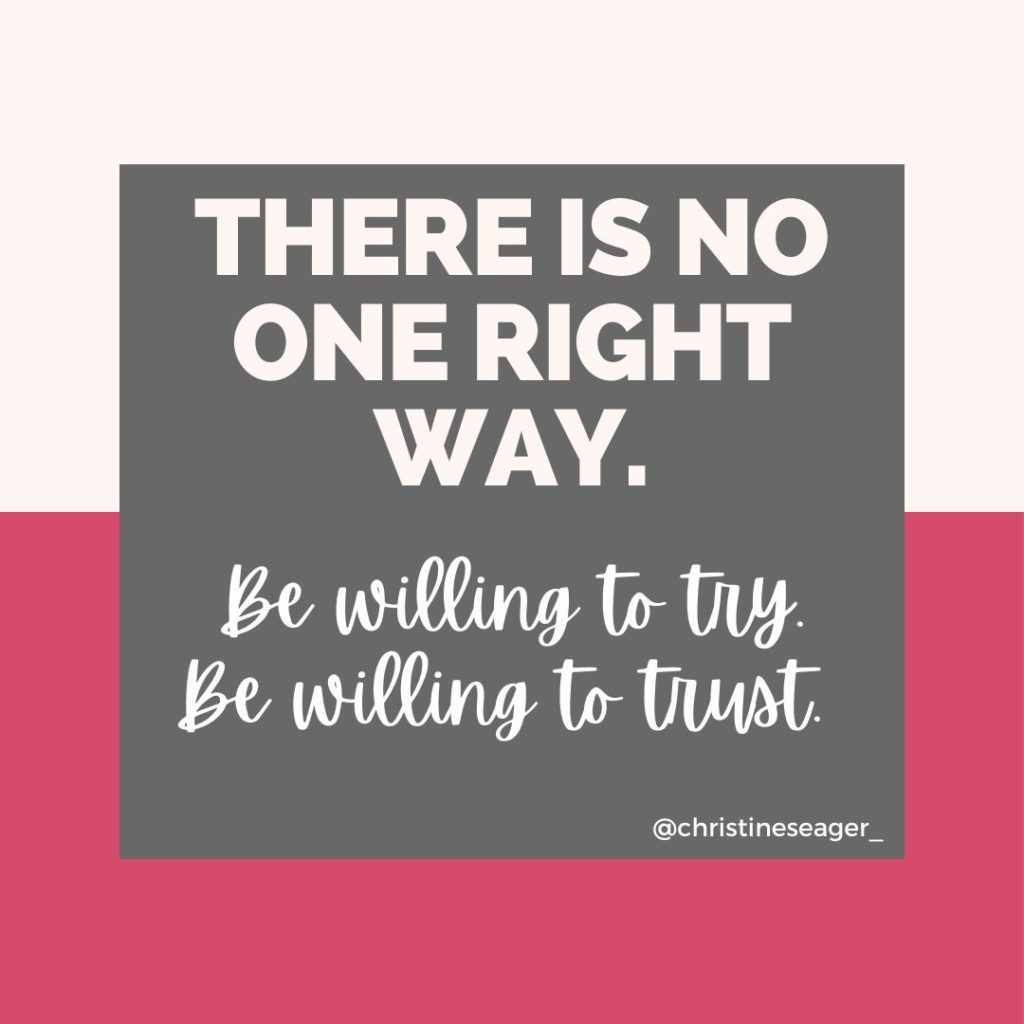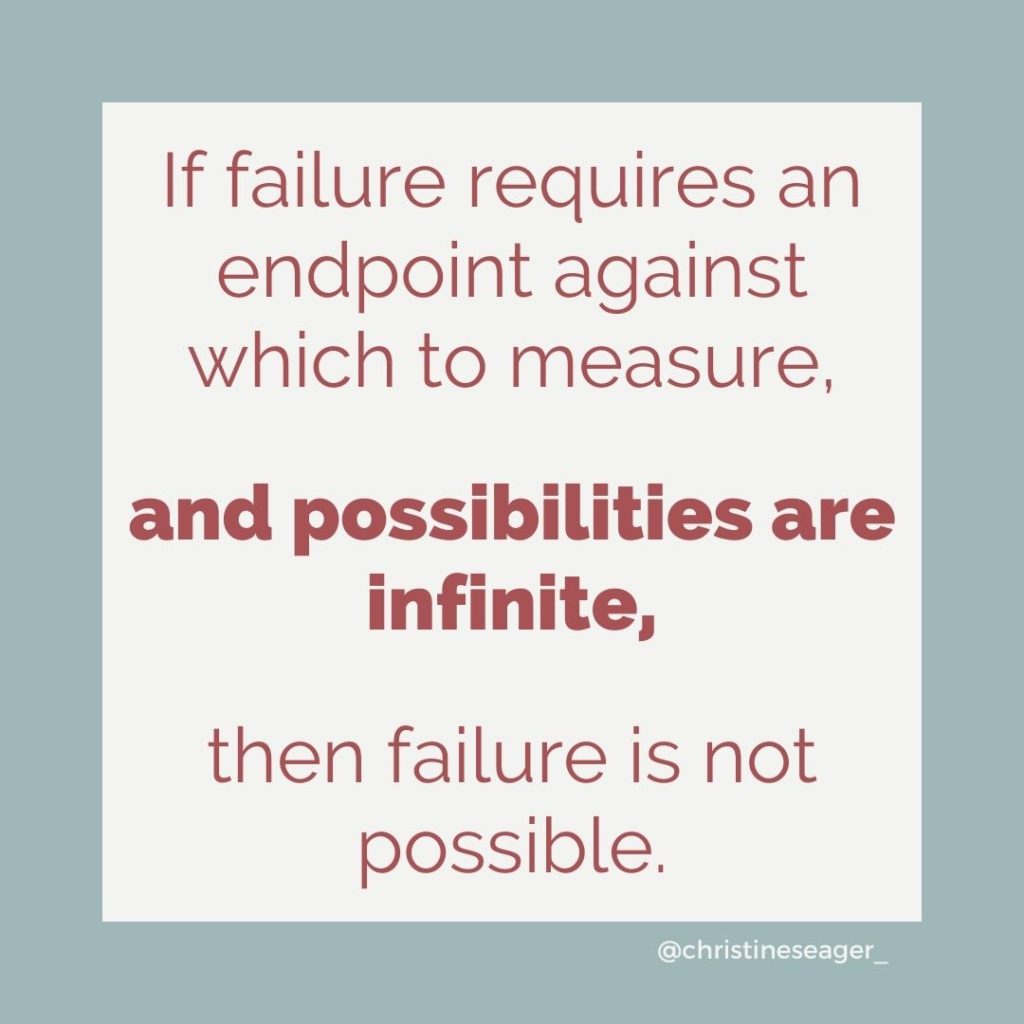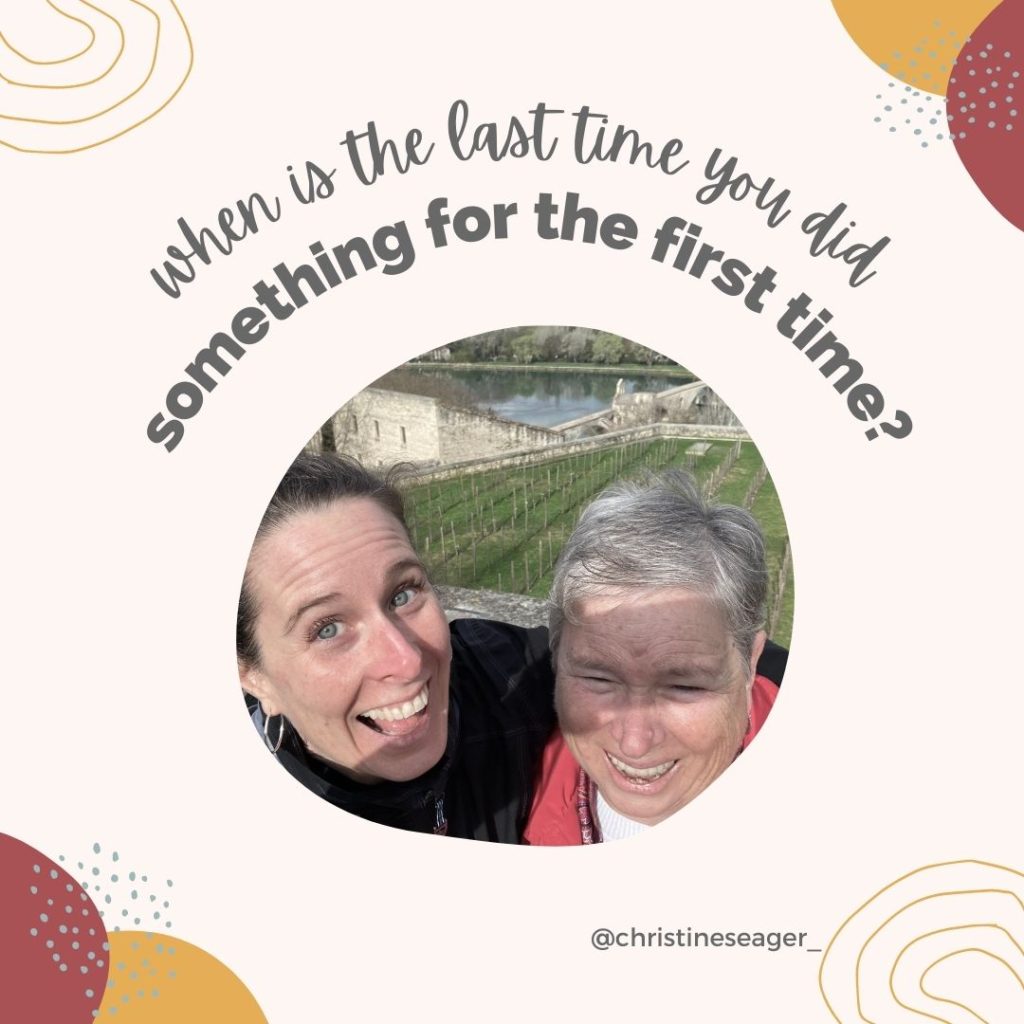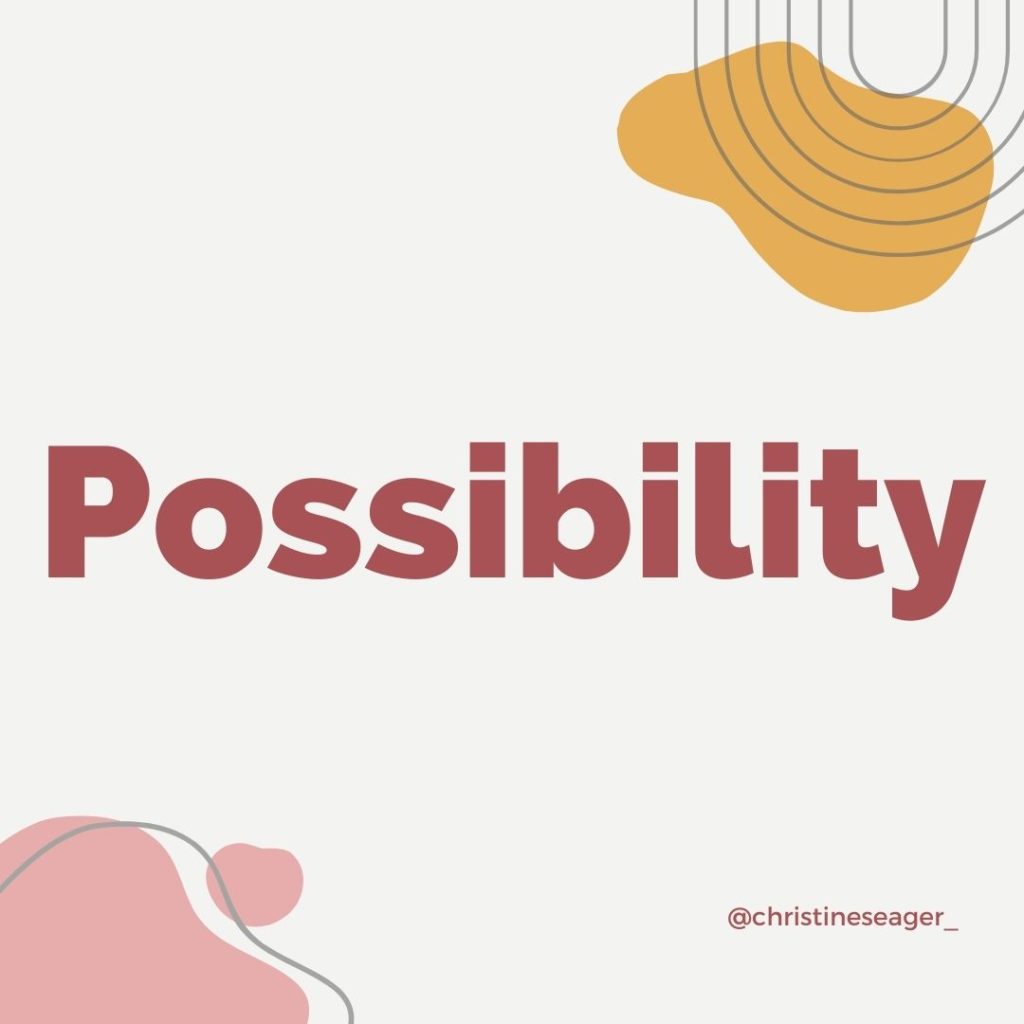We think there is only one “right” way, but we don’t know what it is.
We see others having the success we want, but we don’t know how.
We wonder what they know that we don’t.
We wonder what we’re missing.
We wonder why they have “it,” and we don’t.
We sit, maybe feeling sorry for ourselves, taking no action because it all feels so obscure.
But here’s the truth.
What works for them might not work for you.
You won’t know until you try it.
What works for you might not work for them, either.
You won’t know until you try it.
Be willing to try.
Be willing to trust.
Be willing to jump in with both feet.
No action will keep you right where you are, and
you were meant for more than this.









